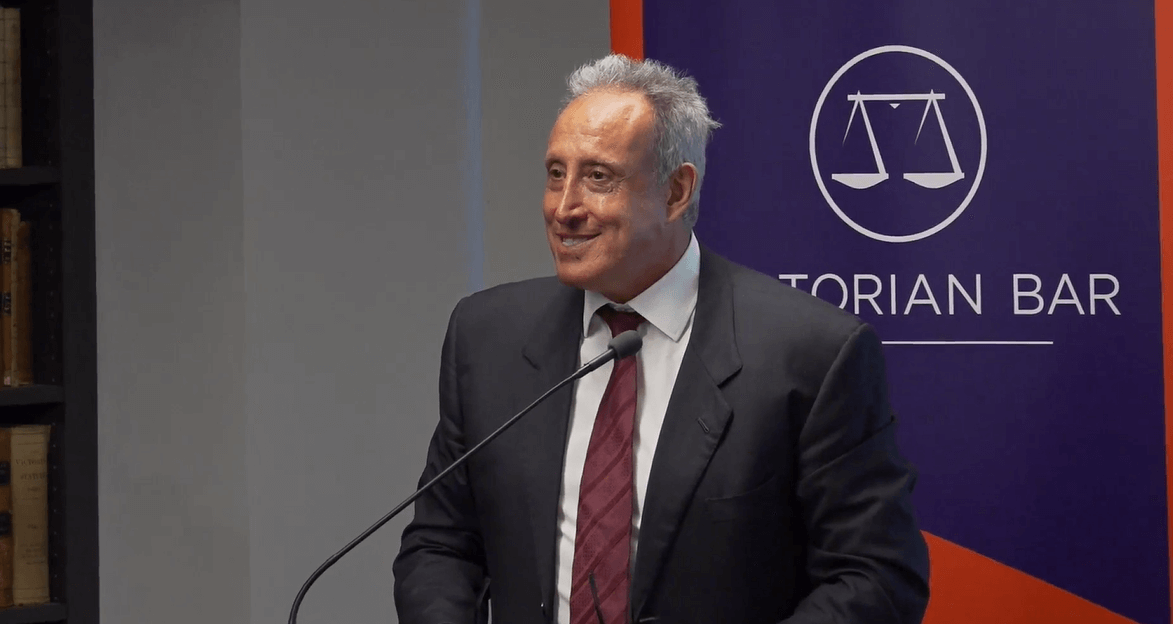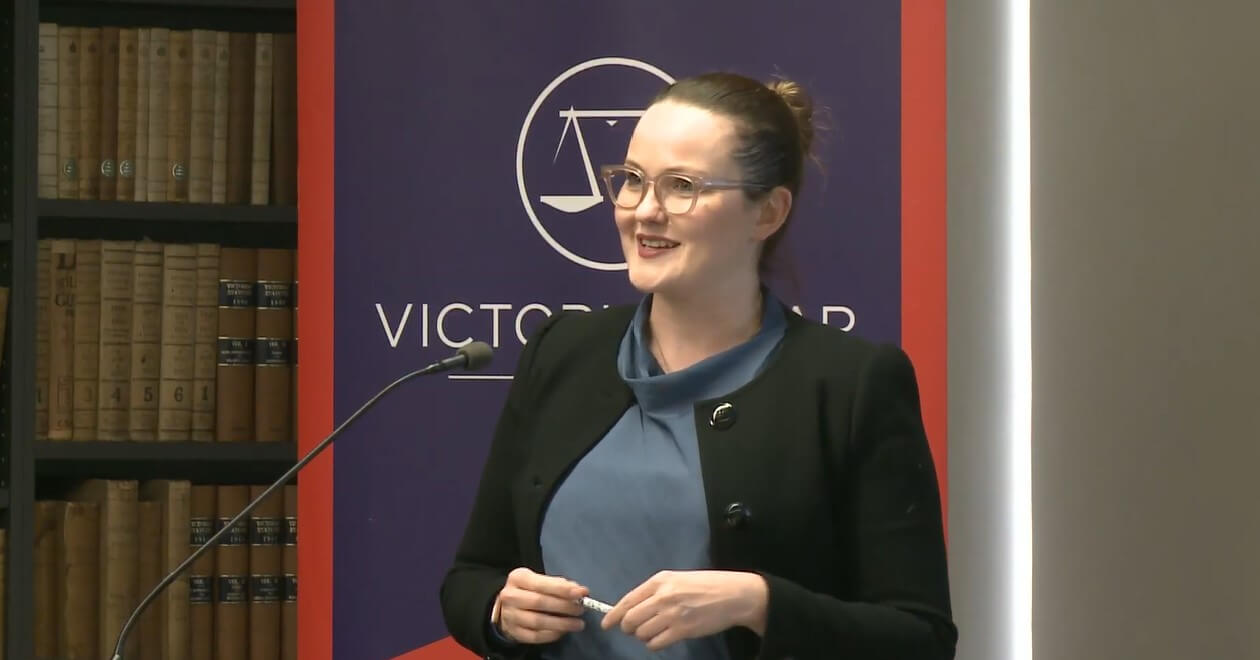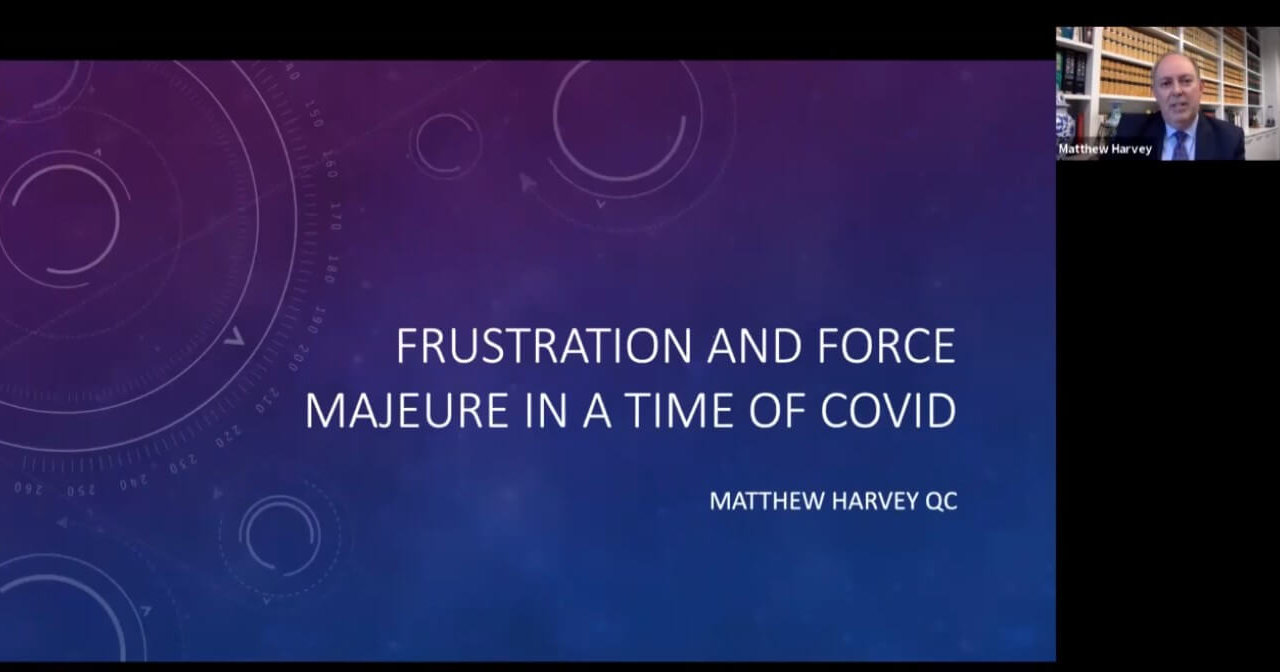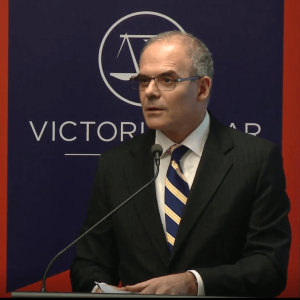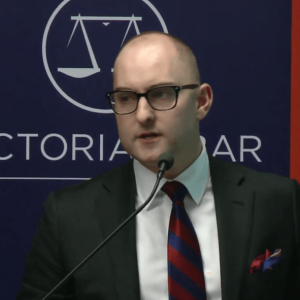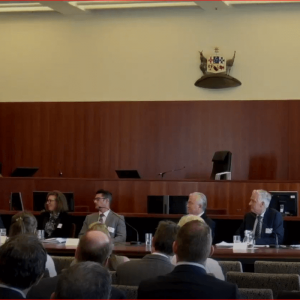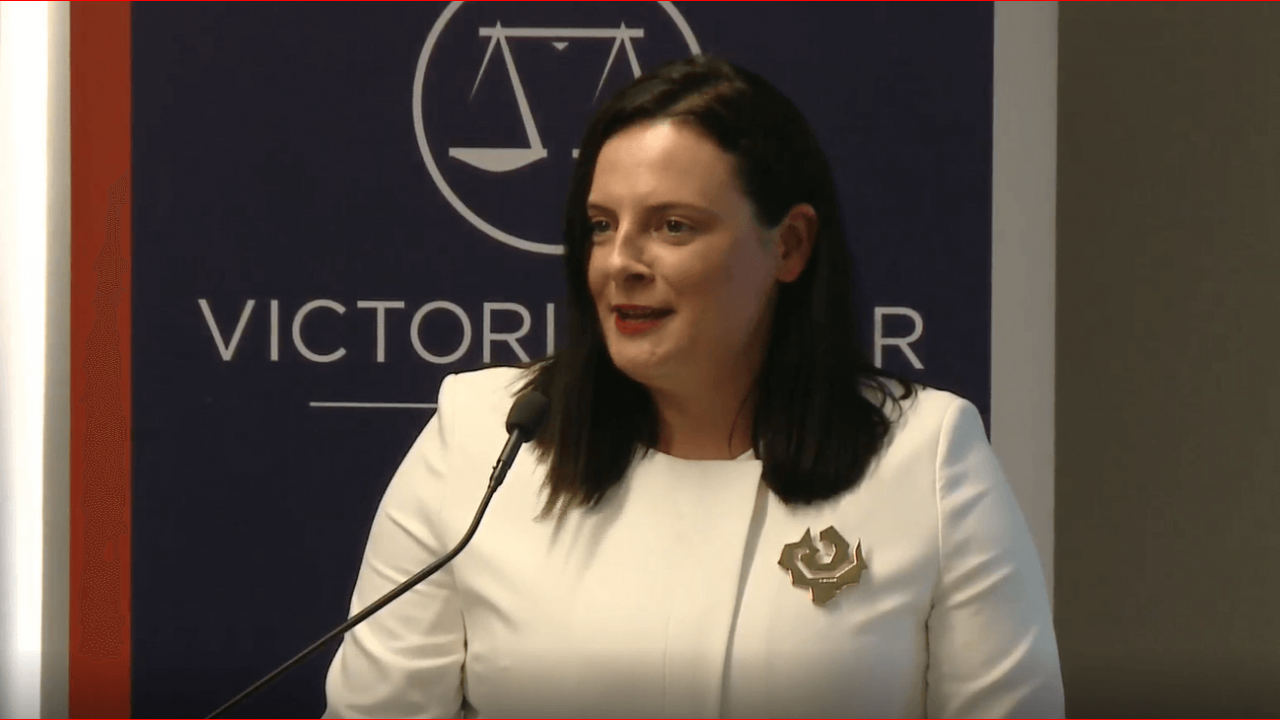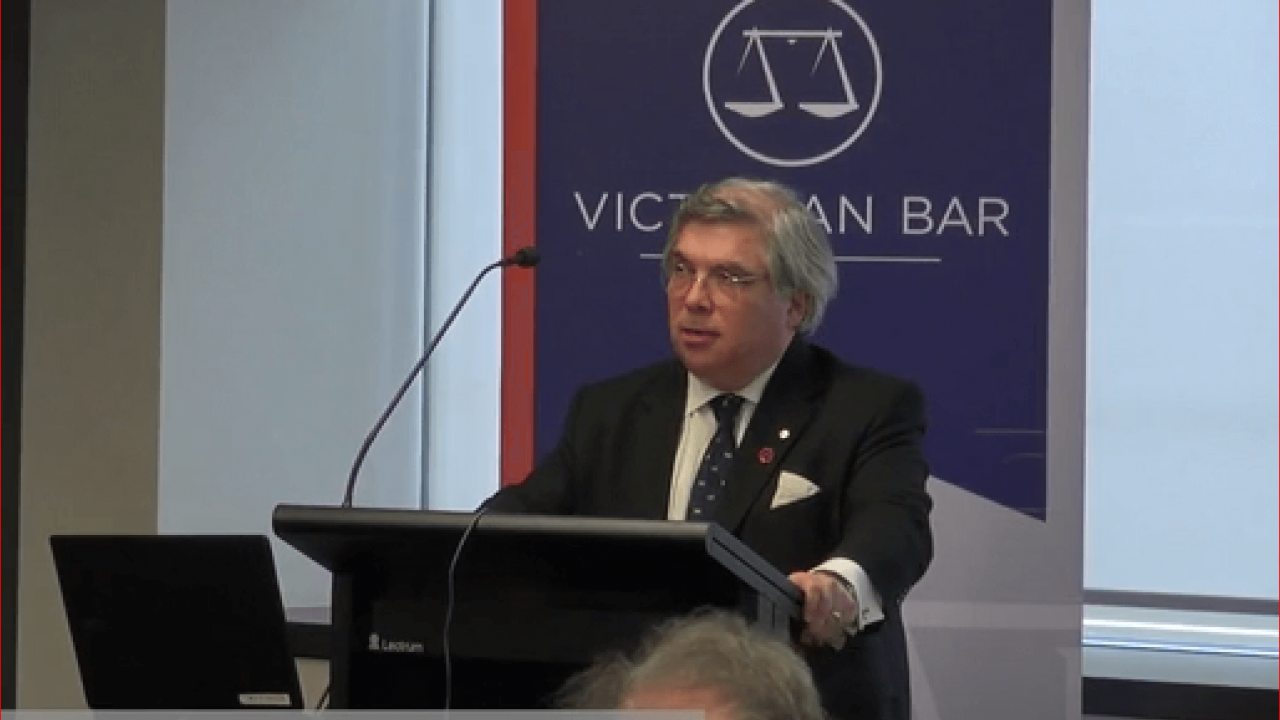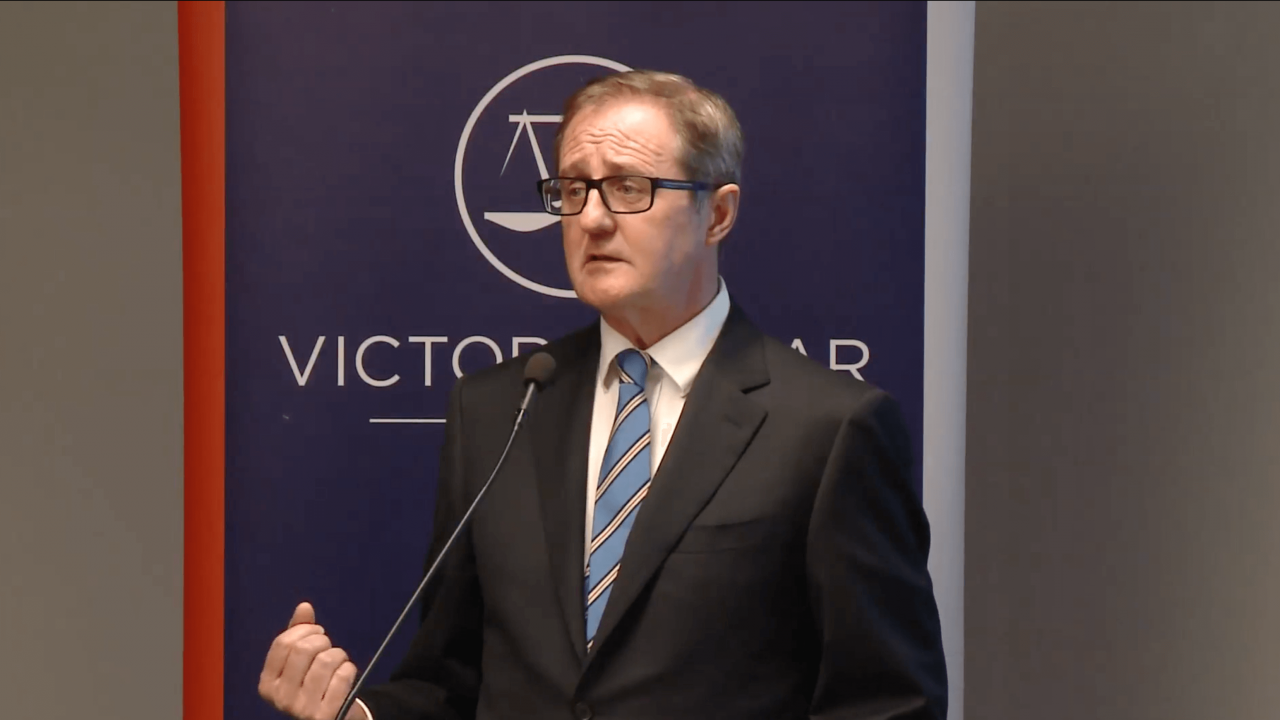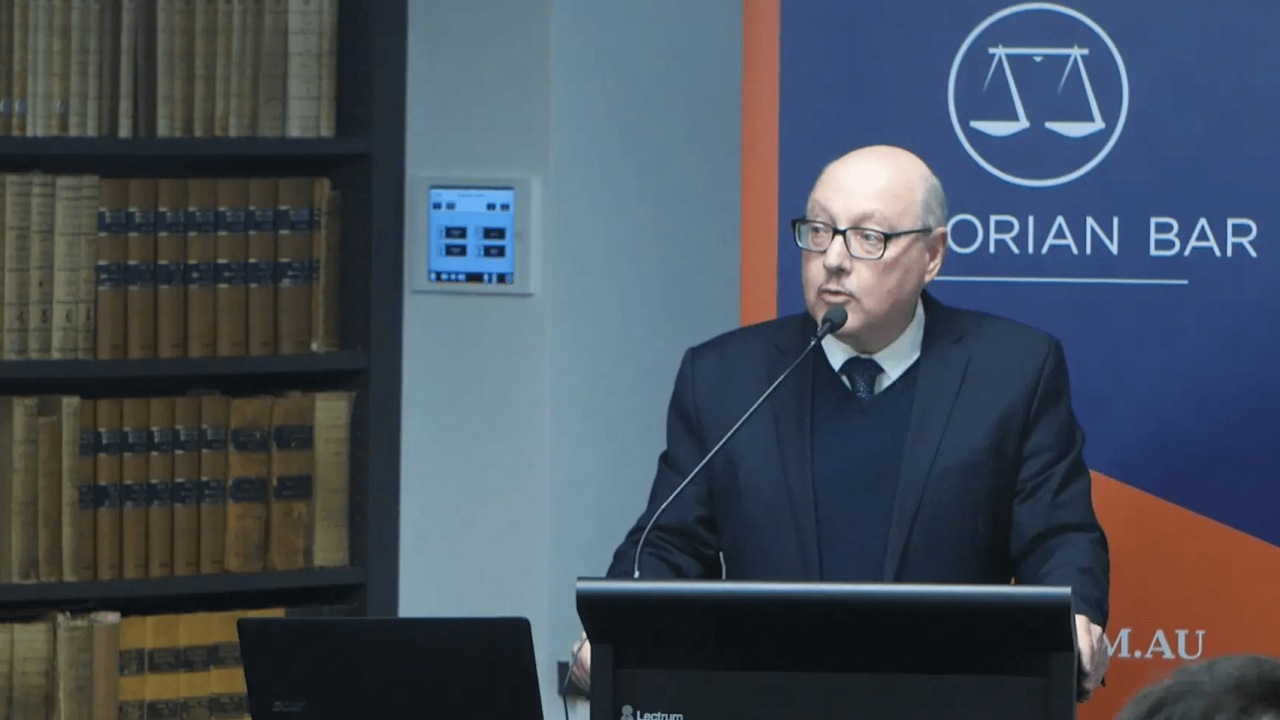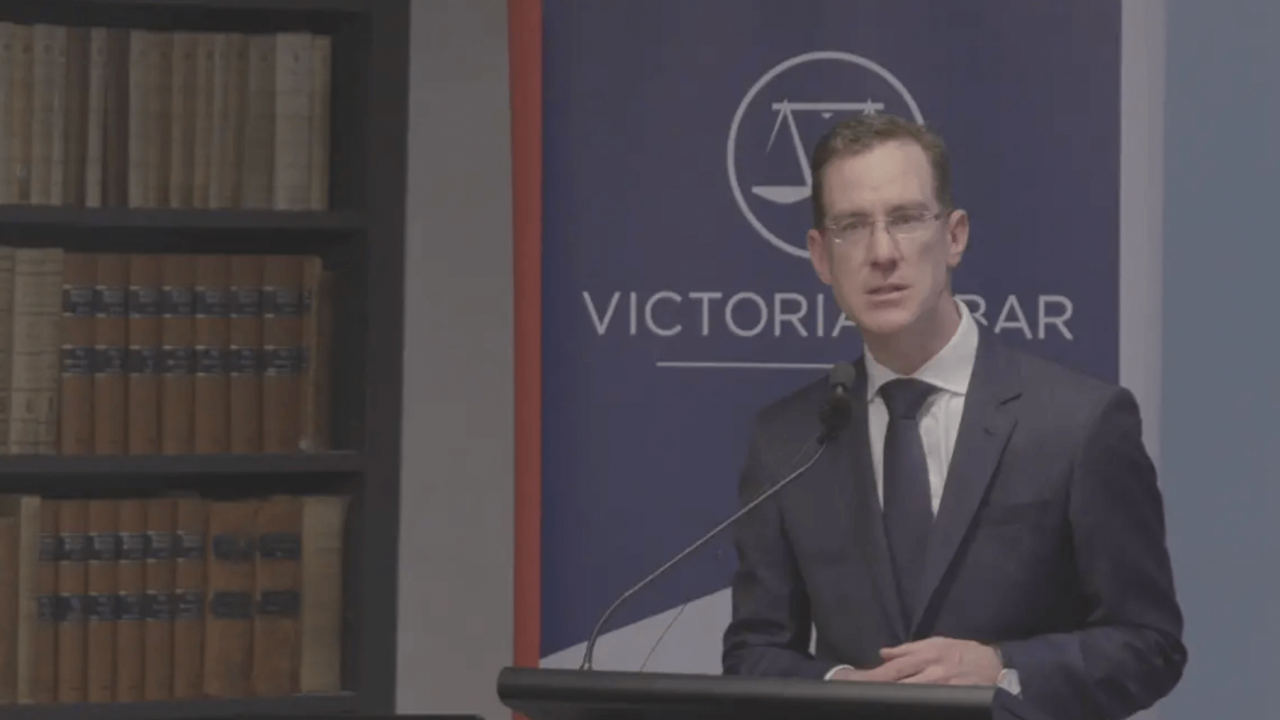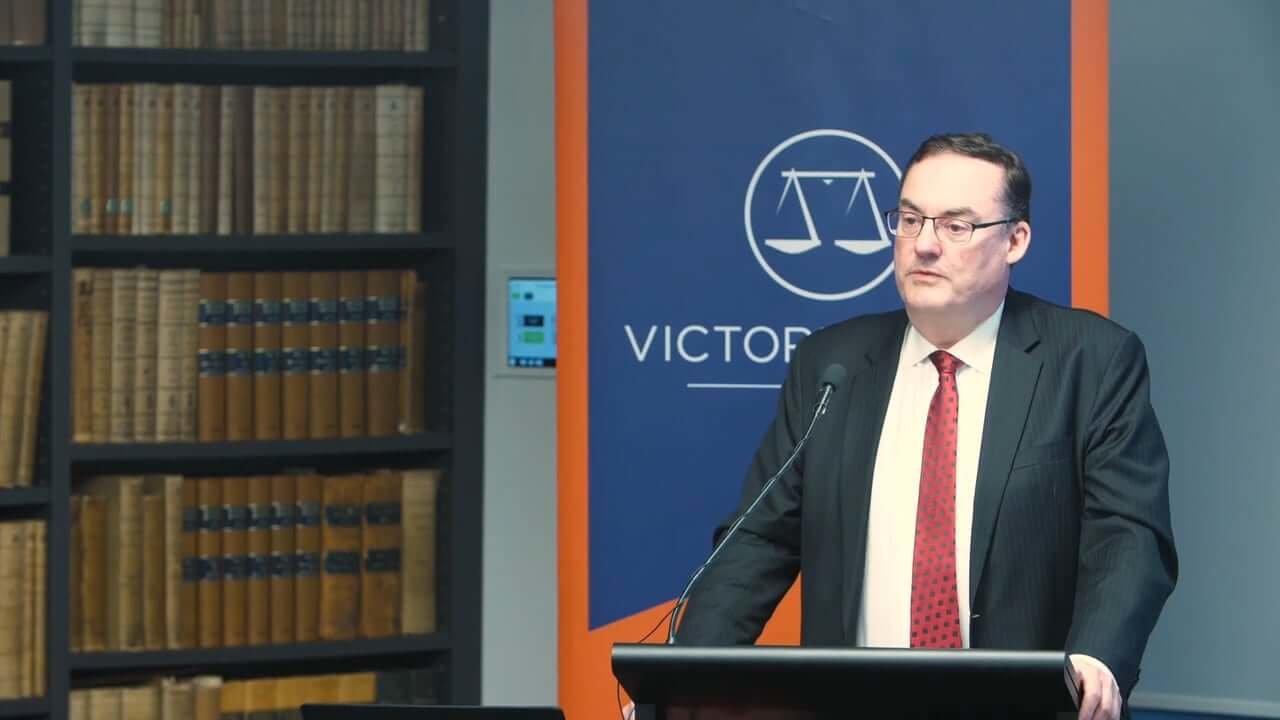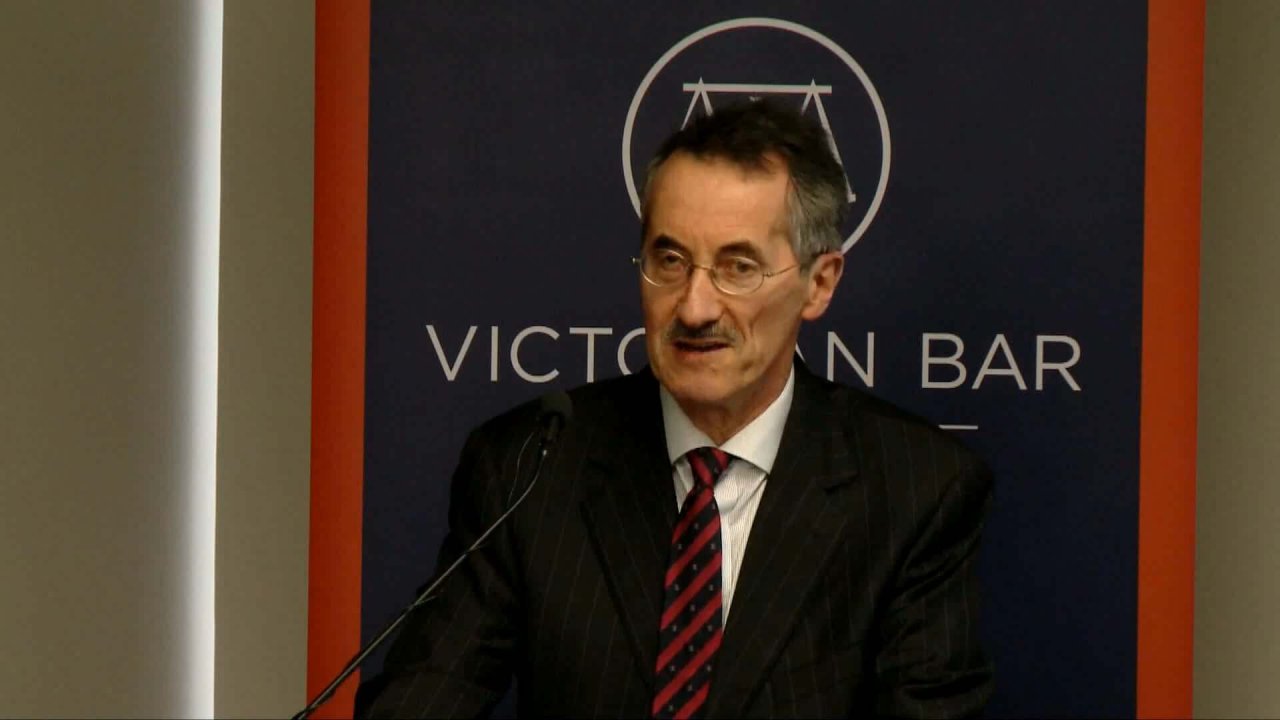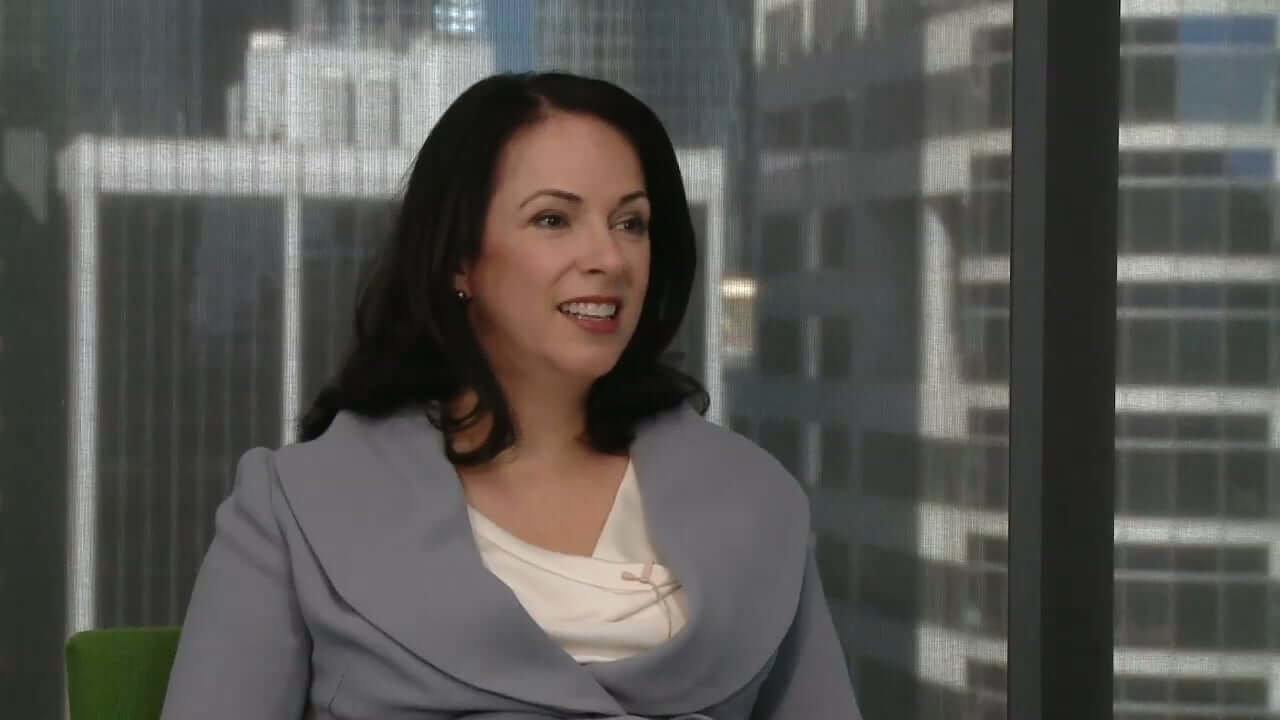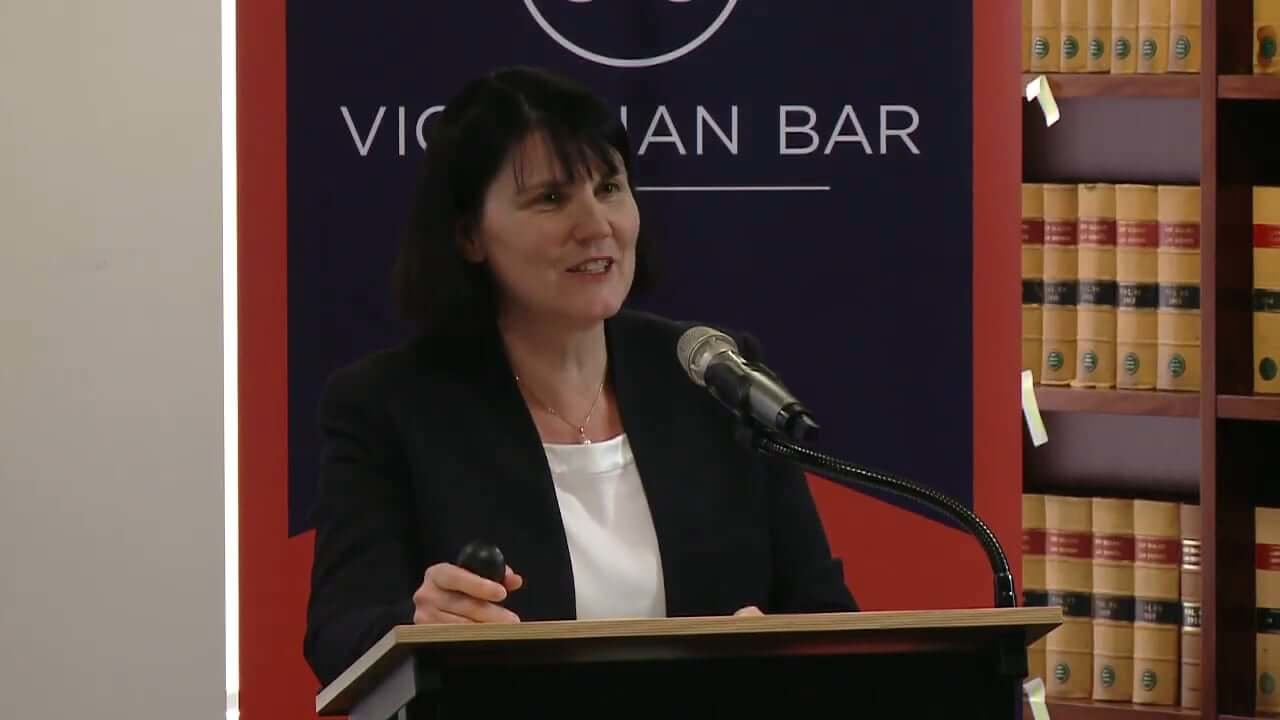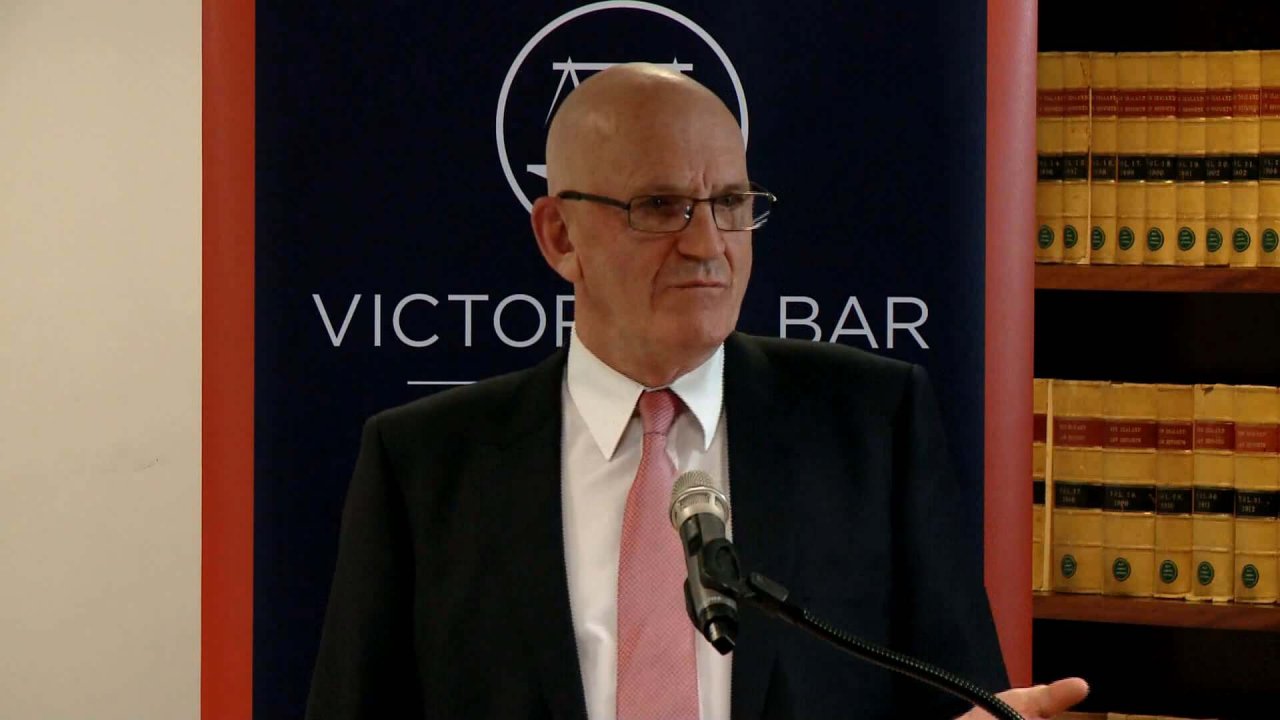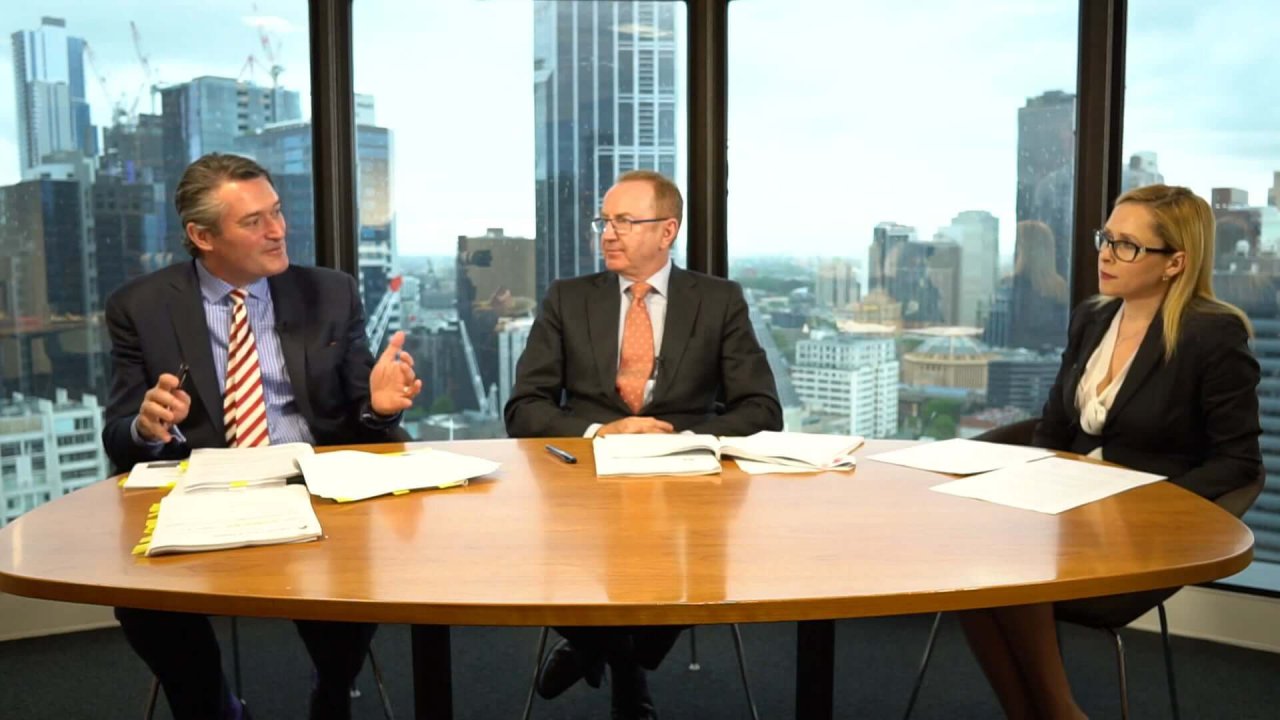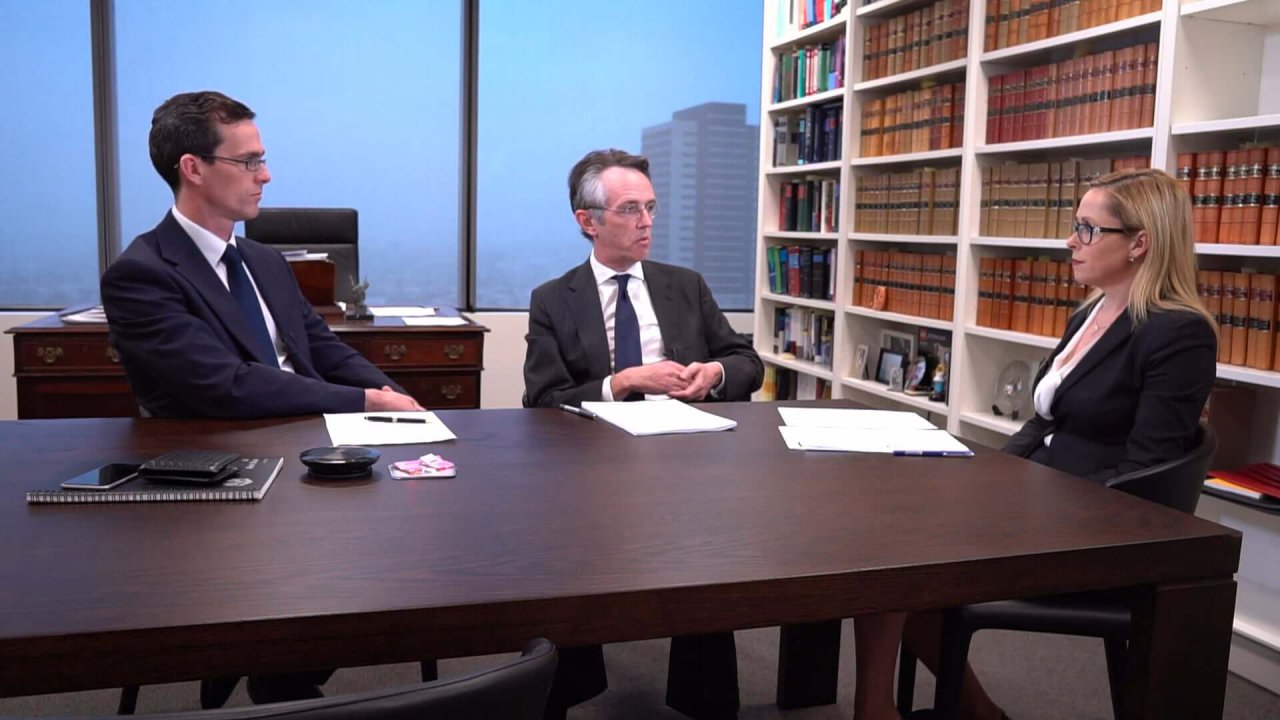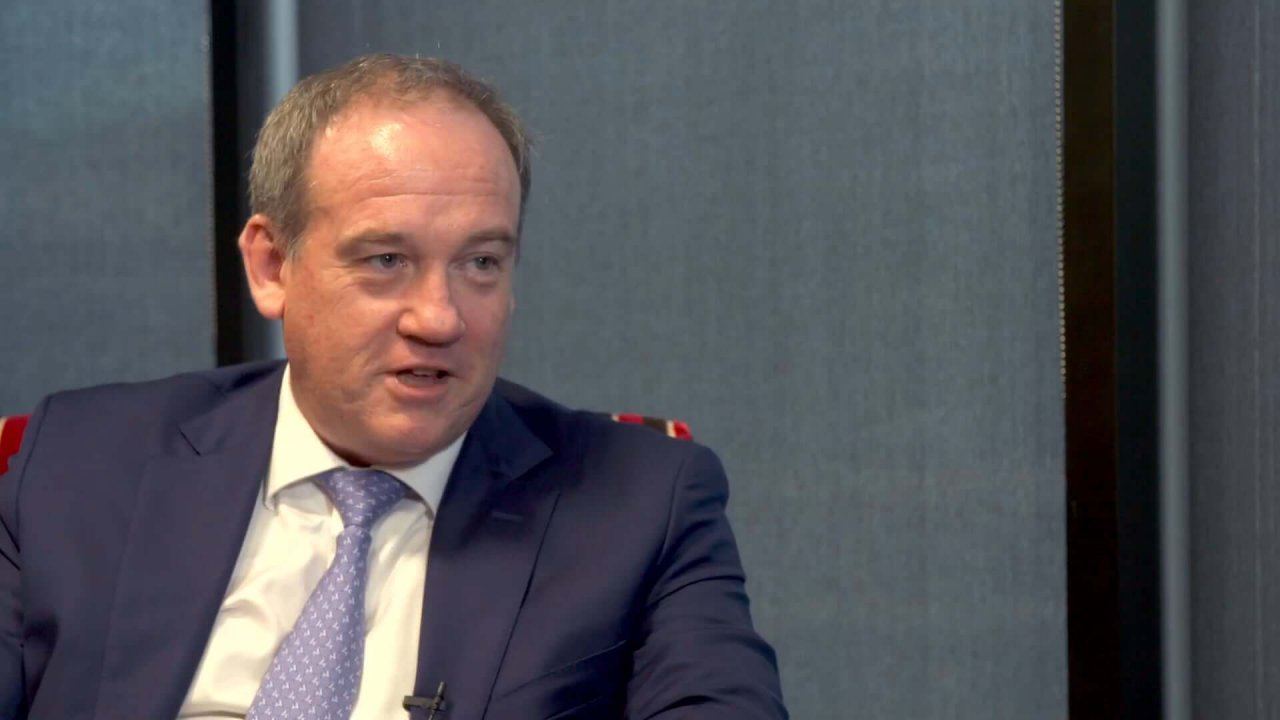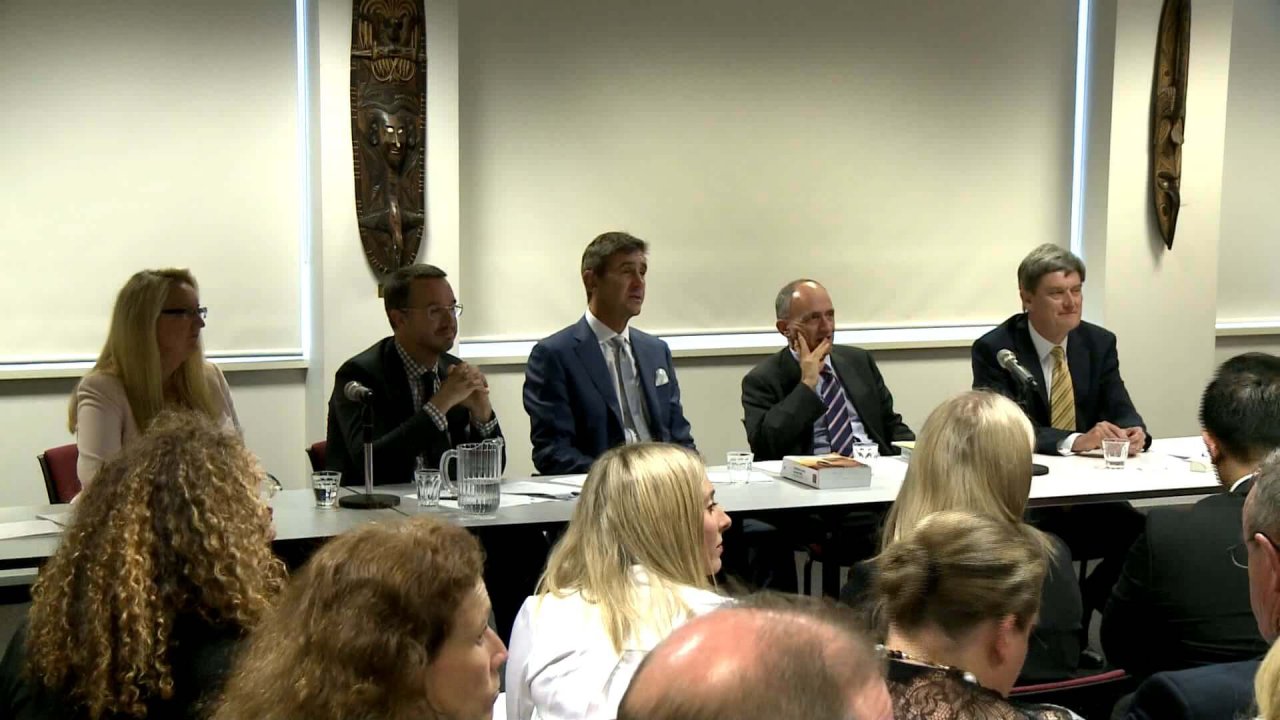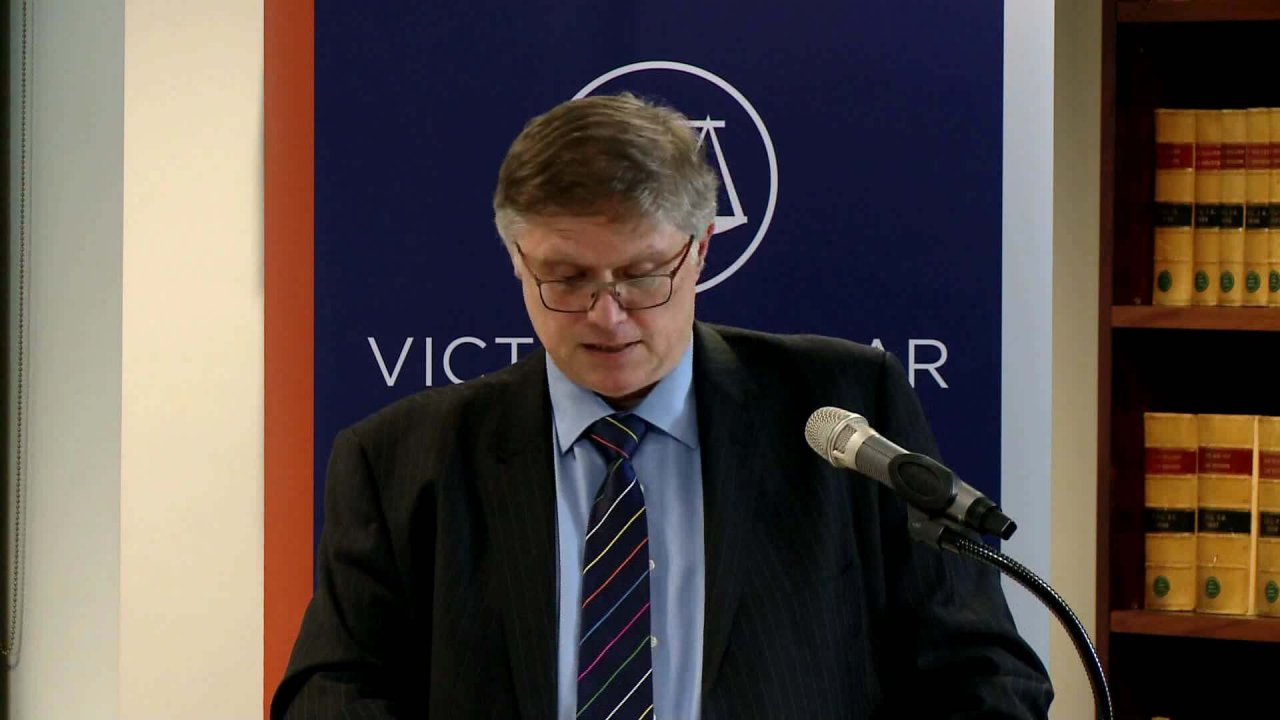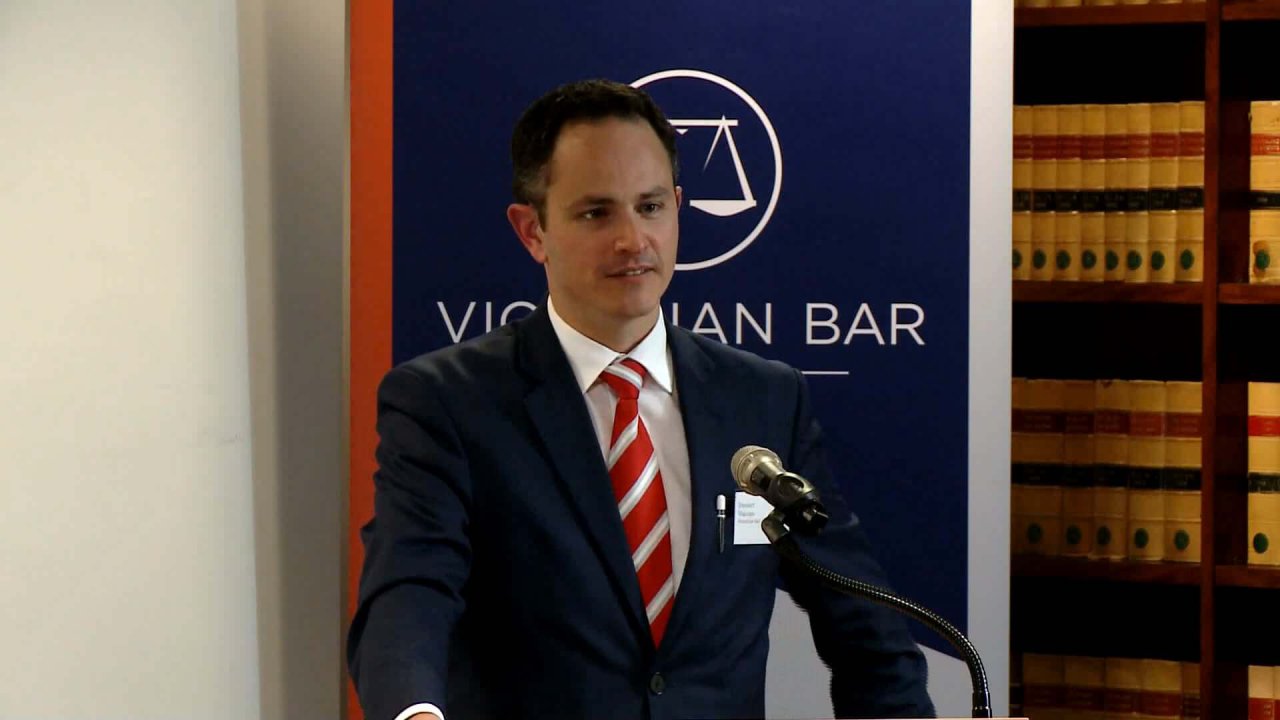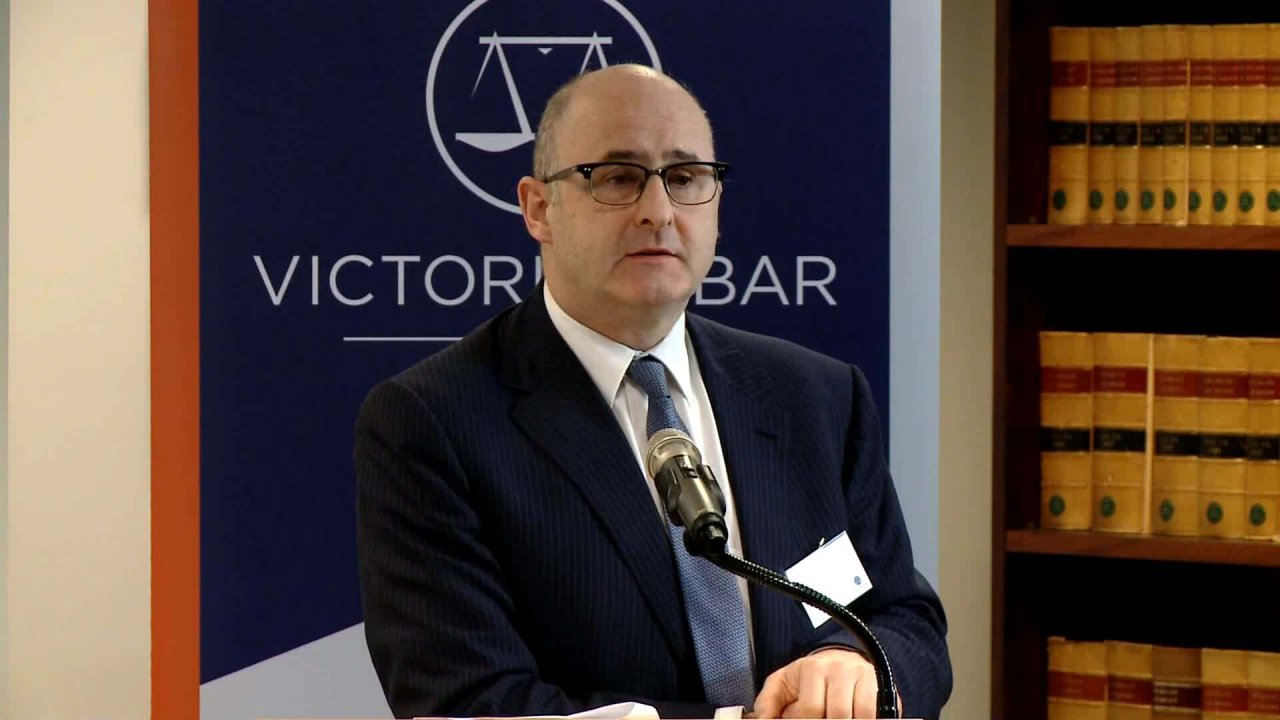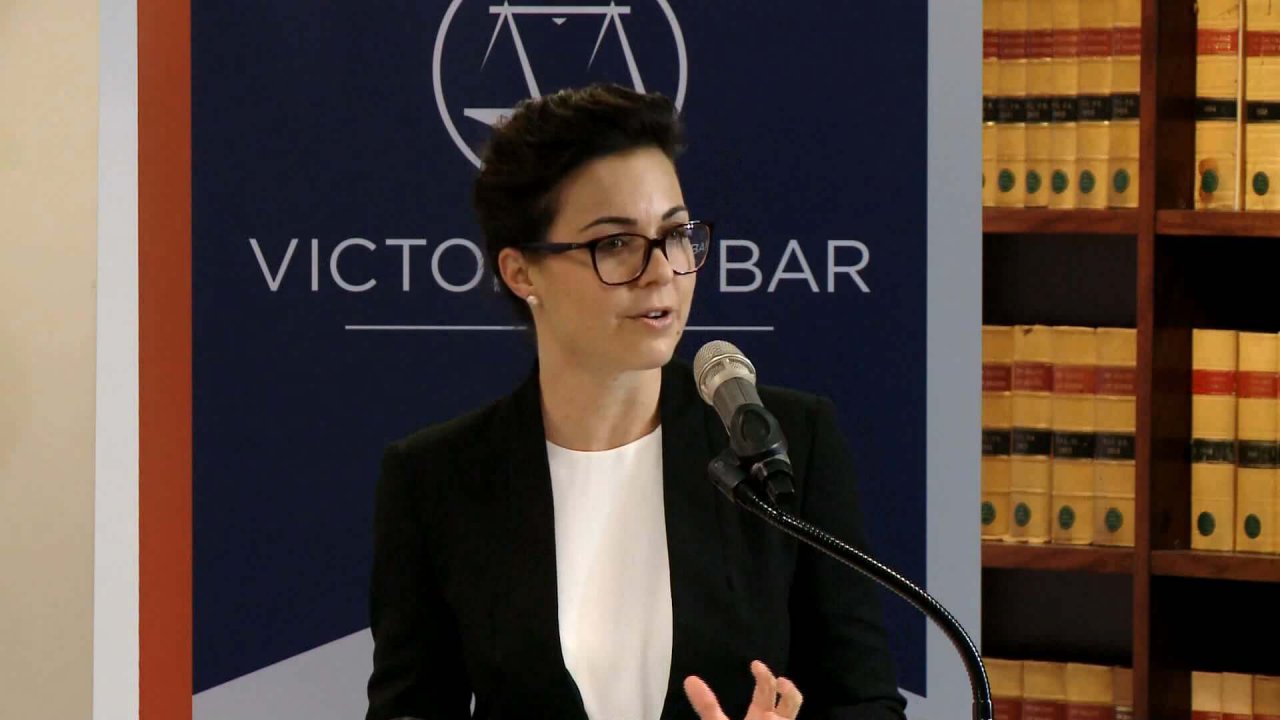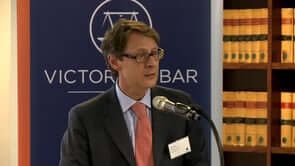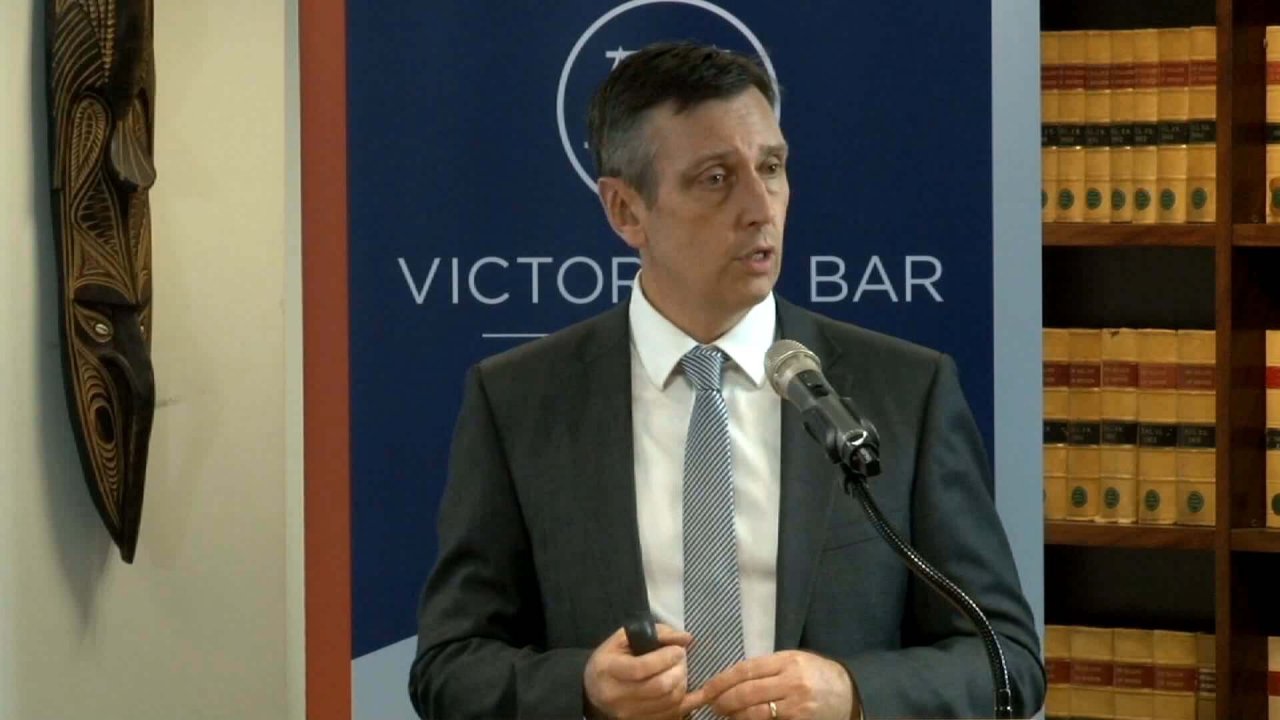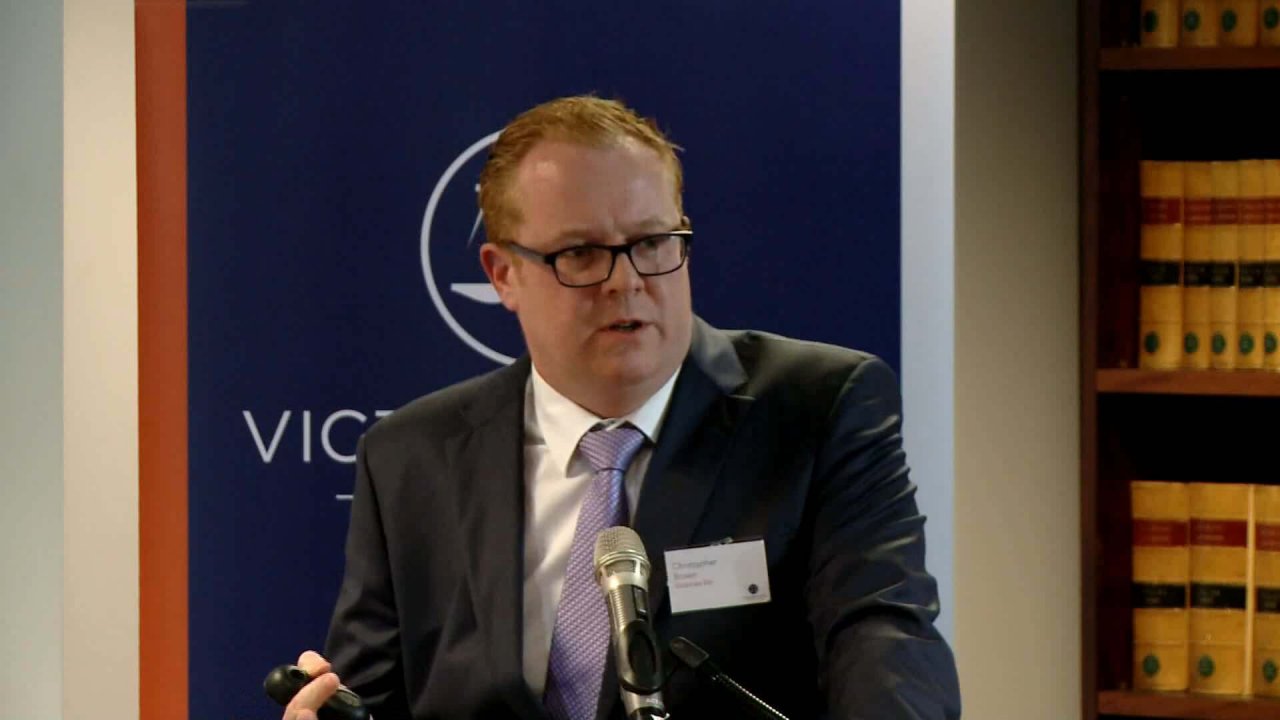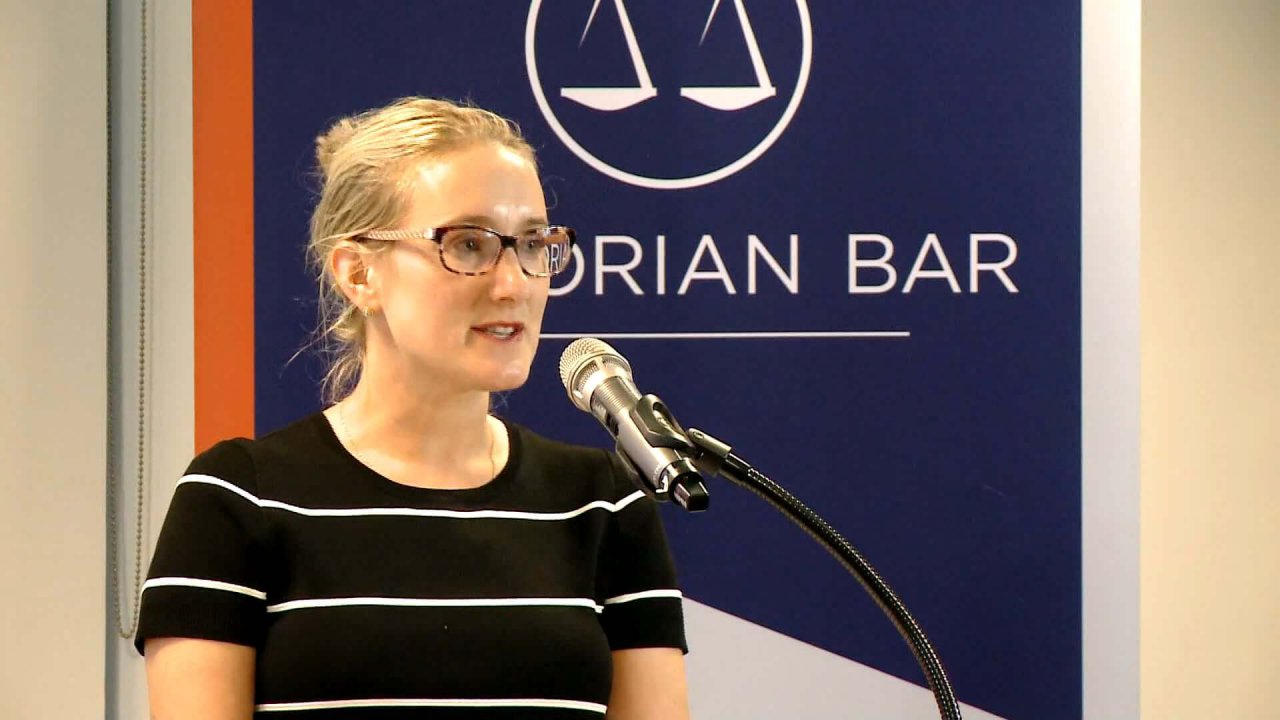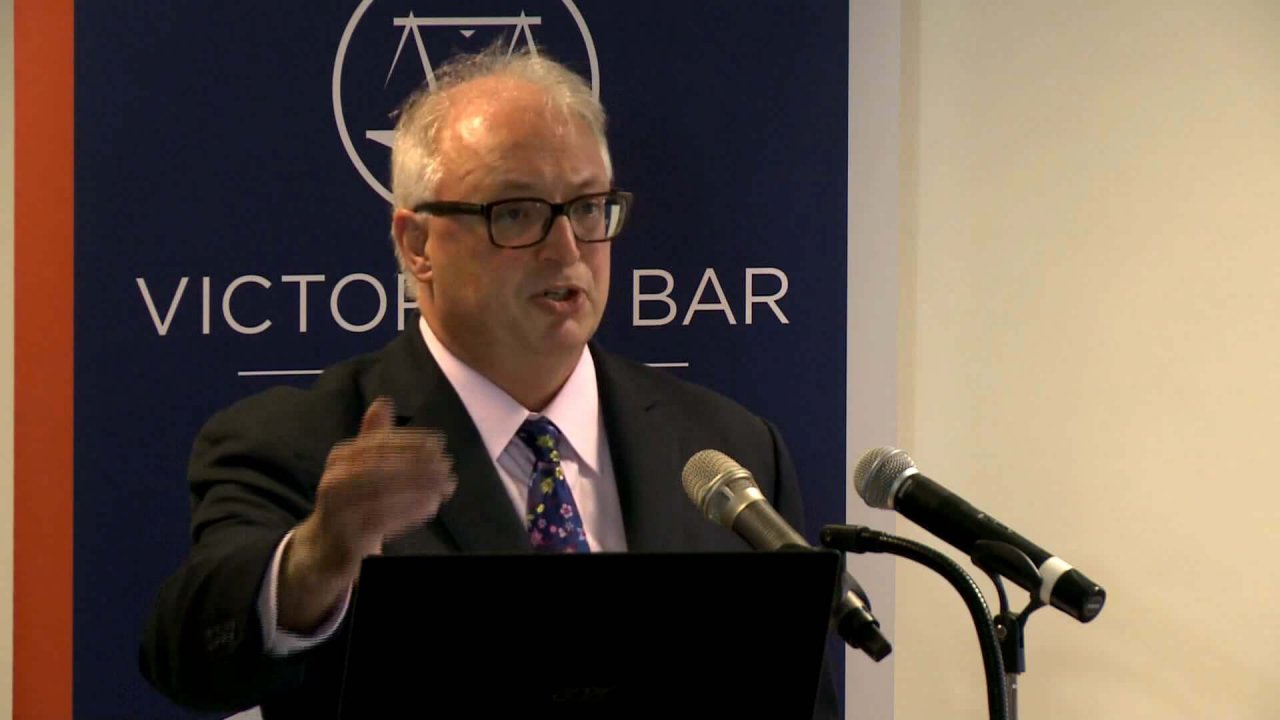
Archive
Showing 1–35 of 36 results
Oppression: Between the devil and s233
$77.00Oppression: Between the devil and s233
2 December 2021
This session will provide an overview of oppression remedies under s233 of the Corporations Act 2001 (Cth).
Aimed at both new and experienced practitioners, it will address:
- relevant conduct which may constitute oppression;
- practical aspects in commencing proceedings;
- likely outcomes (buy-out versus winding up);
- other factors to be considered (eg: trading trusts, directors’ duties, tax consequences); and
- key cases.
Party politics, private bodies and prerogative powers: the limits of supervisory review
$77.00Party politics, private bodies and prerogative powers: the limits of supervisory review
30 November 2021
In this seminar, the speakers will discuss recent developments in the scope and limitations of supervisory review by the Courts including:
- Kairouz v Bracks (No 2) [2021] VSC 671; Asmar v Albanese (No 4) [2021] VSC 672 with discussion of –
- shifting judicial attitudes towards the justiciability of internal affairs of political parties, as voluntary unincorporated associations
- the significance of statutory registration, public functions and access to public funding as matters justifying judicial intervention
- whether a decision of a private body is amenable to judicial review, with reference to two recent cases which considered the application of the Datafin principle in Australia: Vergara v Chartered Accountants ANZ [2021] VSC 34 and Durney v Unison Housing (2019) 57 VR 158.
- how courts conduct judicial review of non-statutory executive powers, whether the grounds of review are the same as those that apply to statutory powers, Attorney-General (Cth) v Ogawa (2020) 281 FCR 1 and “subject matter” immunity from judicial review.
Frustration and Force Majeure in a Time of Covid
$77.00Frustration and Force Majeure in a Time of Covid
The Covid-19 crisis and lockdowns were unforeseen events, impacting on the performance of contracts. Can parties escape their contractual obligations by relying on the doctrine of frustration in a time of Covid? How do these events affect force majeure clauses? These questions and more will be answered in this CPD.
The final word on the application of the statutory priority regime to insolvent corporate trustees: The High Court decision in Re Amerind
$77.00The final word on the application of the statutory priority regime to insolvent corporate trustees: The High Court decision in Re Amerind
The High Court decision has clarified how liquidators of corporate trustees may deal with trust assets and the application of the priority regime prescribed by the Corporations Act 2001 to the distribution of the proceeds of trust assets to trust creditors. The decision also resolves the long-standing tension between the decision of the Full Court of the Supreme Court of South Australia in Re Suco Gold Pty Ltd (in liq) (1983) SASR 99 and the Full Court of the Supreme Court of Victoria in Re Enhill Pty Ltd [1983] 1 VR 561.
Blockchain, Cryptocurrencies and the Law: Early Cases and Regulatory Trends
$77.00Blockchain, Cryptocurrencies and the Law: Early Cases and Regulatory Trends
This session builds on the previous Victorian Bar CPD session that provided an introduction and overview to blockchain technology and cryptocurrencies. This session will survey the extant Australian case law considering blockchain and cryptocurrencies, drawing out the key themes and implications for the law and legal practice. The session will also delve into current regulatory trends and make predictions about the types of evidentiary, legal, and jurisdictional issues that may arise in the context of future legal disputes.
Class actions and third party litigation funders – what’s next after the ALRC final report?
$77.00Class actions and third party litigation funders – what’s next after the ALRC final report?
This seminar will address the Australian Law Reform Commission’s recent report, Integrity, Fairness and Efficiency—An Inquiry into Class Action Proceedings and Third-Party Litigation Funders, including the ALRC’s recommendations with respect to the regulation of third-party litigation funding in class actions, the case management of class…
Victorian Heads of Jurisdiction Present on Emerging Areas of Practice
$77.00Victorian Heads of Jurisdiction Present on Emerging Areas of Practice
In the seminar, the Chief Justice of the Supreme Court, the Chief Judge of the County Court of Victoria, the Chief Magistrate of the Magistrates’ Court of Victoria and the President of the Victorian Civil and Administrative Tribunal will each explore emerging practice areas, as well as highlighting those practice areas that are static or shrinking.
Apprehended Bias – To Recuse or Not to Recuse? A Panel Discussion
$77.00Apprehended Bias – To Recuse or Not to Recuse? A Panel Discussion
The Commercial Bar Civil Procedure Section is pleased to present a panel discussion on the vexed issue of making applications to judicial officers to recuse themselves on the grounds of apprehended bias. The panel will review recent decisions in this area and will provide an overview as to how best to (or how best not to) approach such an application.
Loss and Damage – When is it to be assessed and when does it arise?
$77.00Loss and Damage – When is it to be assessed and when does it arise?
This seminar provided an update on principles of loss and damage in particular the time for assessment, and when loss and damage first arises. An understanding of these issues is critical for trial.
Recent Developments in the Commercial Court
$77.00Recent Developments in the Commercial Court
Developments in the Commercial Court continue apace. During this seminar, members of the Court speak about management for the Corporations List, formalisation of the oppression proceeding program, judicial mediations, new powers for judicial registrars, and e-filing.
Restitution and Account of Profits for Misleading and Deceptive Conduct Under the Australian Consumer Law
$77.00Restitution and Account of Profits for Misleading and Deceptive Conduct Under the Australian Consumer Law
This seminar examined the boundaries of remedies available under the Australian Consumer Law by reference to gain-based measures of relief as a means both of providing recompense to the plaintiff and deterring misleading conduct.
Internationalisation of Directors’ Duties
$77.00Internationalisation of Directors’ Duties
Directors of companies that trade overseas, and those of subsidiaries of overseas companies, may have duties imposed upon them by foreign law and be subject to the jurisdiction of foreign courts, especially where entities or their holding companies are approaching insolvency. Legal advisers have to be aware of the potential for that to occur. This presentation discusses the potential liability and provides examples of it. It also looks at and discusses the need to develop an understanding of how different legal systems impose duties on directors. This seminar is open to barristers, solicitors, in-house counsel and insolvency practitioners.
Dealing with Self-Represented Litigants in Commercial Cases
$77.00Dealing with Self-Represented Litigants in Commercial Cases
This seminar provides insight into dealing with self -represented litigants in commercial cases with a perspective from the bench and the bar and also look at the role of the Victorian Bar Pro Bono Scheme.
Artificial Intelligence: Legal Issues and Litigation – Overview
$77.00Artificial Intelligence: Legal Issues and Litigation – Overview
In this CPD, the panel will provide an update on global Artificial Intelligence trends, implications for the law, and impacts on legal practice and litigation
Remedies for Antecedent Transactions In Insolvency
$77.00Remedies for Antecedent Transactions In Insolvency
His Honour Judge Anthony Kelly of the Federal Circuit Court of Australia chairs a discussion with speakers Michael Galvin QC and Daniel Snyder hosted by the Victorian Bar and the Insolvency Section of the Commercial Bar Association.
An ATO Registry of Trusts and Trust Assets
$77.00An ATO Registry of Trusts and Trust Assets
Dr John Glover, commercial barrister specialising in trusts and tax law and Professor of Law in the Graduate School of Business and Law at RMIT University, speaks on whether Australia needs an ATO registry of trusts and trust assets, and possible characteristics of such a registry.
Q&A Session with Lisa Hannon: IT’S NOT “THE VIBE” – Effectively managing compensation claims following compulsory land acquisition
$77.00Q&A Session with Lisa Hannon: IT’S NOT “THE VIBE” – Effectively managing compensation claims following compulsory land acquisition
In this Q&A Session with Lisa Hannon, key discussion points cover the area of compulsory land acquisition including the basic concepts, possibilities for compensation, how practitioners can best manage client expectations, unpacking “LACA Language” and the importance of specialist advice.
Bywater Investments – What did the High Court decide and What are the Implications for Corporate Residence?
$77.00Bywater Investments – What did the High Court decide and What are the Implications for Corporate Residence?
This CPD seminar discusses the High Court’s decision in the Bywater Investments case and the status of Esquire Nominees Ltd v FCT (1973) 129 CLR 177 after Bywater Investments. Dr Julianne Jaques also discusses lessons from Bywater for ensuring foreign subsidiaries remain non-resident.
- Ethics and Professional Responsibility, Professional Skills, Practice Management and Business Skills
Ten Tips for Good Courtroom Communication with Judges
$77.00Ten Tips for Good Courtroom Communication with Judges
This seminar discusses how Barristers can effectively communicate with Judges. The seminar is presented by Victorian County Court Judge Chettle. Judge Chettle advises advocates from his own experiences, both as a Judge and Barrister, the steps to take to create and maintain a positive relationship with a judge throughout a case.
Q&A Session with Stewart Maiden – Cross Border Insolvency Law: What is it & Why is it Important?
$77.00Q&A Session with Stewart Maiden – Cross Border Insolvency Law: What is it & Why is it Important?
In this Q&A Session, Stewart Maiden discusses cross border insolvency law – what it is, why it is important, questions of jurisdictional diversity, modified universalism, the UNCITRAL Model law, foreign proceedings and centre of main interests. Stewart also discusses the cases of Akers v Deputy Commissioner of Taxation, Legend International Holdings Inc (in liq) v Indian Farmers Fertiliser Cooperative Limited and the Hanjin Shipping case.
Q&A Session with James W S Peters QC & Daniel Crennan – Code of Banking Practice: Relevance, Issues & Key Cases
$77.00Q&A Session with James W S Peters QC & Daniel Crennan – Code of Banking Practice: Relevance, Issues & Key Cases
In this Q&A Session, James W S Peters QC and Daniel Crennan discuss the Code of Banking Practice, including the types of issues it deals with, how it affects the relationship of Banking and customer/guarantees, warranties, breaches and conditions. Two key cases in Victoria discussed in this Q&A include Doggett v CBA and NAB v Rose.
Q&A Session with Martin Scott QC & Chris Young – The Shen Neng Shipping Case: Insights & Implications
$77.00Q&A Session with Martin Scott QC & Chris Young – The Shen Neng Shipping Case: Insights & Implications
This Q&A Session with Martin Scott QC & Chris Young discusses the Shen Neng ship grounding on the Great Barrier Reef, and how the issues are of broader relevance to running and managing litigation or arbitration involving foreign litigants,foreign witnesses, non-English speaking witnesses, unusual fields of expertise or large claims against insured defendants.
Q&A Session with Michael Wyles QC – Class Actions & Access to Justice: Control over Proceedings, Opting Out & Case Management
$77.00Q&A Session with Michael Wyles QC – Class Actions & Access to Justice: Control over Proceedings, Opting Out & Case Management
In this Q&A Session, Michael Wyles QC discusses class actions, the relevant sections in the Supreme Court Act 1986, opting out of class actions, class members’ control over proceedings, power to commence a class action and the class action plaintiff’s duty to class members. Michael Wyles QC also provides practical tips on strategy, documentation handling & risk management.
Family Law and Bankruptcy – the Perfect Storm
$77.00Family Law and Bankruptcy – the Perfect Storm
This is a panel session which discusses the legal issues that arise in bankruptcy cases in relation to family law matters. The panel, chaired by Geoffrey Dickson QC consists of barristers Leslie Glick QC, Peter Fary and Catherine Gobbo, as well as Family Court Justice Paul Cronin.
Q&A Session with James W S Peters QC – Directors’ and Officers’ Insurance: Construction and Causation
$77.00Q&A Session with James W S Peters QC – Directors’ and Officers’ Insurance: Construction and Causation
In this Q&A Session, James WS Peters QC discusses key issues and recent developments in the area of Directors’ and Officers’ (D&O) insurance with particular focus on construction and causation, and the recent Oz Minerals and Hird v Chubb decisions.
Enforcement of Foreign Judgments and the Privy Council’s recent decision in Vizcaya Partners Ltd v Picard & Anor [2016] UKPC 5
$77.00Enforcement of Foreign Judgments and the Privy Council’s recent decision in Vizcaya Partners Ltd v Picard & Anor [2016] UKPC 5
This seminar examines enforcement of a foreign judgment based on submission to jurisdiction. It discusses the Privy Council decision in Vizcaya Partners Ltd v Picard & Anor [2016] UKPC 5; the role of experts on foreign Law; and both the Foreign Judgments Act 1962 (Vic) and the Foreign Judgments Act 1991 (Cth).
Debate: Timberworld Ltd v Levin [2015] 3 NZLER 365
$77.00Debate: Timberworld Ltd v Levin [2015] 3 NZLER 365
This is a debate between barristers Damien McAloon and Katherine Brazenor on the issue of whether the peak indebtedness rule remains an essential part of Australian Law. The Moderator is retired Federal Court Judge, the Honourable Ray Finkelstein AO, QC. The debate is sparked by the New Zealand Court of Appeal rejection of the peak indebtedness rule in Timberworld Ltd v Levin [2015].
Public Examinations: Perspectives from the Supreme Court and Federal Court
$77.00Public Examinations: Perspectives from the Supreme Court and Federal Court
This CPD is a panel session on matters of public examinations. The Panel, chaired by Michael Galvin QC, consists of Tim Luxton Deputy District Registrar, Federal Court Australia, Julian Hetyey, Judicial Registrar of the Commercial Court of the Supreme Court of Victoria, Rupert Burns, Deputy District Registrar of the Federal Court and barrister Dr. Oren Bigos.
A Client’s Perspective: Direct Briefing, Flattery and Achieving “Winning” Outcomes
$77.00A Client’s Perspective: Direct Briefing, Flattery and Achieving “Winning” Outcomes
This seminar explores what a practitioner can do to attract corporate clients to brief directly. Mediator Emily Dewberry draws on her experience as an insurance claims manager to give practitioners an insight into what corporate clients are looking for in their counsel, and how practitioners can use this knowledge to their benefit.
The Harper Review and the Future Direction of Competition Law
$77.00The Harper Review and the Future Direction of Competition Law
This CPD seminar is a panel session on the Harper Review and the future direction of competition law. This CPD includes discussion on: areas of review, government response to recommended reforms, reform topics, expansion of competition prohibitions to government activity, removal of prohibitions and expansion and simplification of exemption regimes.
Q&A Session with Wendy Harris QC – Tatts and Tabcorp Litigation: Statutory Claims and Construction of Contract
$77.00Q&A Session with Wendy Harris QC – Tatts and Tabcorp Litigation: Statutory Claims and Construction of Contract
In this Q&A Session, Wendy Harris QC discusses the Tabcorp and Tatts litigation including: statutory claims and interpretations; principles of redundancy and illegality; contract construction; the intersection of contract and statute and contractual and statutory rights.
Fraud Investigation & Forensic Accounting Demystified
$77.00Fraud Investigation & Forensic Accounting Demystified
This CPD session highlights the assistance that forensic accountants and fraud investigators can provide to legal professionals, particularly in the investigation stages, and further in the analysis stages in fraud cases. Key areas covered in this CPD include: the costs & facts of fraud, bribery & corruption; cases studies; foreign bribery & corruption types of forensic accountants engagements; what forensic accountants and certified fraud examiners do, and compares the differences between auditing and forensic investigations.
The Interaction between Bankruptcy and Non-Bankruptcy Courts
$77.00The Interaction between Bankruptcy and Non-Bankruptcy Courts
This CPD is a seminar on the interaction between bankruptcy and non-bankruptcy Courts. Barrister Christopher Brown exmaines many of the common statutory provisions that are relevant to bankruptcy cases and recent cases that addresses jurisdictional and standing issues. The CPD then concludes with a Q & A session with Federal Circuit Court Judge Riethmuller
We’ve Got You Covered – The Role of Group Member Insurers in Class Actions
$38.50We’ve Got You Covered – The Role of Group Member Insurers in Class Actions
This CPD is a seminar which examines the case Johnston v Endeavour Energy [2015] NSWSC 1117, which concerned the rights of class plaintiffs and insurers in class actions. Helen Tiplady and Jeff Gleeson QC also provide some practical considerations for those advising class plaintiffs and insurers.
Good Faith in Commercial Agreements-Issues for Advice in Litigation
$77.00Good Faith in Commercial Agreements-Issues for Advice in Litigation
This seminar discuses good faith in commercial agreements – “Test Case” issues for advice and litigation. This area of the law has been problematic in all Australian jurisdictions. The presenter is Professor Bryan Horrigan, Dean of the Faculty of Law at Monash University.


